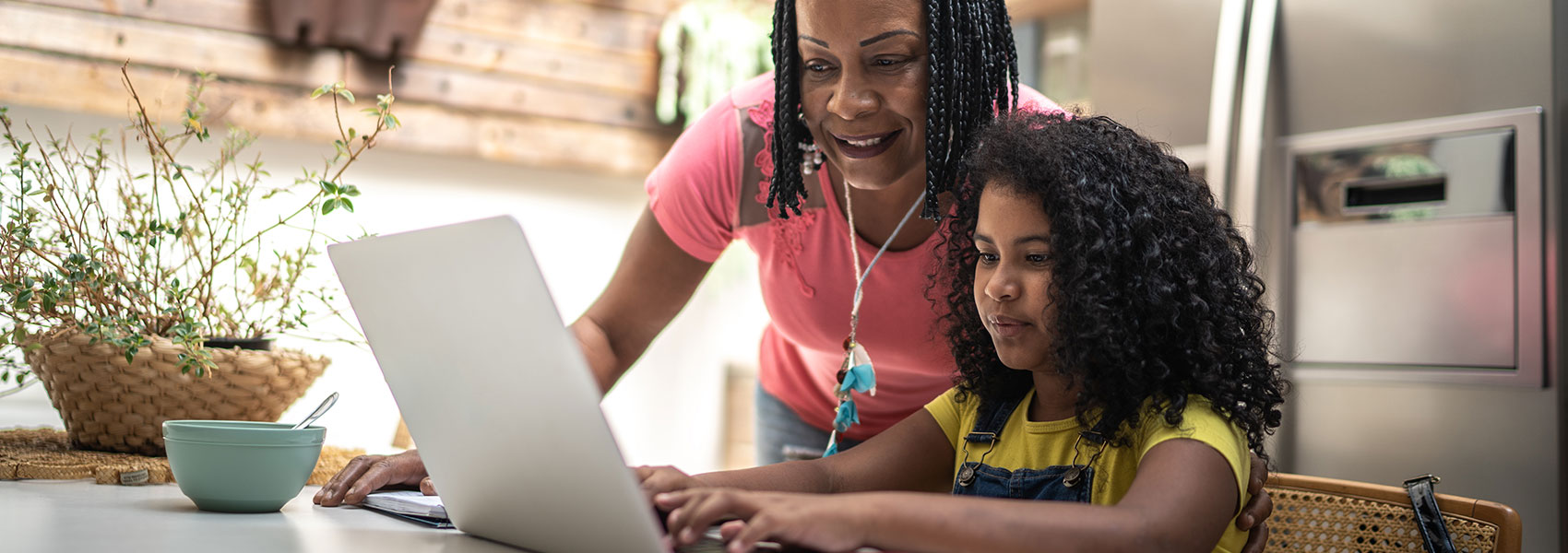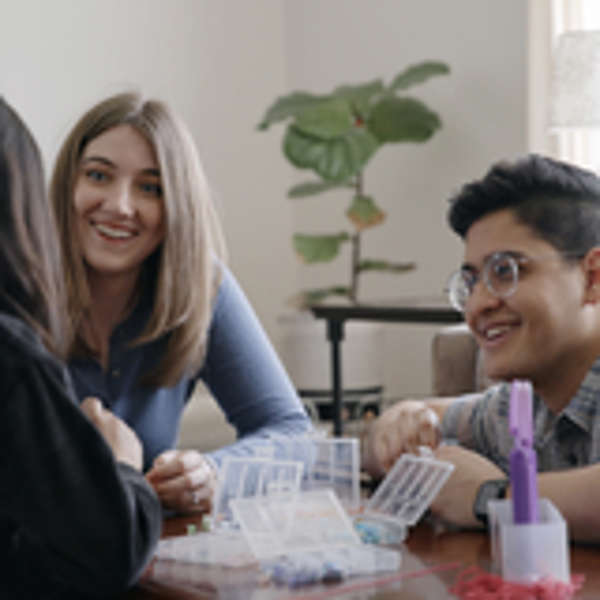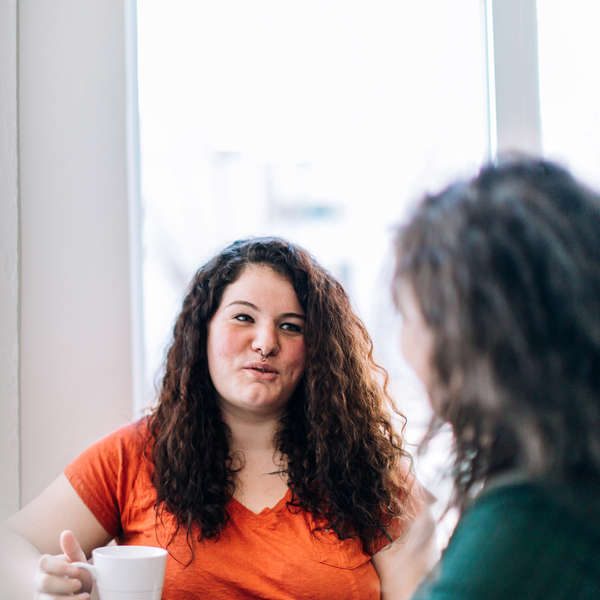3 foster parents confront common myths
“I’m too old.” “I’m single.” “I’ve never parented before.” Uncover the truth.
Carol Lee, senior editor

Myth #1: I can’t foster. I’m too old.
That’s not quite right. Meet Helen.
Sometimes I ask myself why I’m doing this, especially at the age of 76. But these children need somebody. It’s important for children to have the stability of staying somewhere safe and feeling like someone cares about them, like they belong.
I know that feeling. I was in foster care from the age of about 6 or 7, and I was there until I aged out.
When you’re in foster care, you do feel different. You feel like other people are with their parents, and you’re not with yours. The last home I was in was more stable. I felt like they were loving parents that really cared about me. They had several foster kids, and they treated us like family. I think that’s important.
Yes, I wondered if I was too old, if I’d be able to work with children in foster care, especially if they had more significant needs. But working with my own grandchildren gave me confidence that I could do it.
I talked to a neighbor who was doing foster care, and my daughter and grandson encouraged me to do it too.
I did some research, and that’s how I found Bethany. I went to foster care training, which was extremely helpful. I knew that if I had any problems, I could call my Bethany foster care specialist.
The kids have their moments sometimes, naturally they want to be with their parents, so that’s to be expected. When days are rough, I ask God for help. I trust and rely on Him. Other days, seeing the kids happy and full of promise, that’s rewarding.
There are a lot of children out there that need somebody. If you like children, and you know how to treat children, I would say do it. You might be happy that you did.
Myth #2: I can’t foster. I’m single.
You think so? Meet Charlotte.
Fostering as a single parent wasn’t a big deal for me. I grew up in a single-parent home. Both my mother and grandmother were single parents, so I knew it could be done.
But that’s not what encouraged me to foster.
I had a friend who was fostering, and she brought me along to some events. She’d say, “You have the room in your house. You can do this too.” Seeing her foster, and seeing how badly children need loving homes, is what convinced me.
That’s not to say I didn’t have reservations.
There I was, a single woman with a great job and no responsibility but for myself. It was tough to go from that to being available 24/7 for children in my care.
I’m a very private person, and my life became an open book. I quickly realized I no longer had the space or freedom to make decisions only for myself. I now had caseworkers, parents, and children to consider.
After a few months, I decided to stop fostering because it disrupted my life.
But in time, I changed my thought process. I realized my decision to foster was bigger than my need for privacy; it was about caring for children. When I started up again, I approached it differently. I determined I would take a break every few months so I wouldn’t burn out.
Find a great agency
Bethany is the reason I continue to foster. My biggest advice to other single people is to find a great agency; that’s so important. The agency I initially fostered with left me tired and without any support. Bethany showed me what it meant to have a good foundation. With their support, I’ve had up to six children in my home at a given time.
It doesn’t require a two-parent household to take care of a child in need. My family is supportive, and my mom, my uncle, and my brother also build into these children’s lives.
I also want people to know that race doesn’t matter either. I’m an African American woman raising two white teen boys. Color has absolutely nothing to do with giving a child a great home.
Having never been a patient person, I used to pray that God would make me more patient. He sure answered that prayer by putting me in a situation where I’ve been forced to learn this discipline. There are many days I don’t think I’ll make it another minute, but then I’m grateful that I did take that minute to help a child who has had a lot of negativity in their life.
It's satisfying when a child leaves my home stronger than when they came.
Myth #3: I can’t foster. I’ve never parented before.
Not so fast. Meet Kayla and Mike.
Kayla and Mike had been married just a few months when Kayla proposed the idea of becoming foster parents. “I wanted to jump right in,” said Kayla. “Mike was open, but he wanted me to do some research and go from there.”
She searched “good foster care agencies near us,” and together they weighed the pros and cons of working with an agency versus a county office. They wanted the resources and support an agency could provide, so they made the call and scheduled their first training. They were quick to get their physicals done and were approved within three months.
At 23 and 24, they were initially guarded about telling their friends and family. No one in their circle of friends had fostered before, and Kayla and Mike thought their intentions might be misunderstood. Once they’d made up their mind to become foster parents, they thought others would try to talk them out of it because of their ages and because they’d never parented before.
“Our families were a little shocked when we told them,” said Kayla. “Foster care wasn’t something they thought we’d do, especially since we’d never parented. They cautioned us, saying it would be a lot of responsibility. But once they saw the sweet kids who came into our care from hard situations, they began to understand and became supportive. They’d offer to pick up needed items at the store or babysit for us.”
They were both nervous at first, but excited. They committed to being like-minded as foster parents, and talked through scenarios about how they would parent children who weren’t even in their home yet.
Stay flexible and open
“We had the normal fears of having a child ‘on the way,’” said Mike, “but most people have nine months to prepare. We had two days when the first call came. The experience stretched me — I went from living by myself for almost four years to being married and parenting a child.”
Four years later, Kayla and Mike have cared for more than 30 children through foster care, emergency foster care, and respite. They adopted their daughter, Izzie, through foster care when she was six months old.
Like all parents, Kayla and Mike are learning as they go, and they have figured out that they need to adjust their parenting style for each new child in their care.
For example, the firm boundaries they set for their now 3-year-old daughter aren’t always what an older child needs. They’ve found their best approach is to stay flexible and open to learning new things.
Help kids heal
One of the most meaningful things Kayla has learned through this experience has strengthened her relationship with her husband. “I hadn’t realized how foster parenting can test a marriage,” she said. “The main thing I have learned is how strong Mike is. He has been my rock, keeping me calm and keeping things together.”
Kayla and Mike encourage other young couples to consider foster parenting. “These kids come with the clothes on their backs,” said Kayla. “We have the space in our home, and we have the love to give. So, we do our best to make sure they have fresh, clean clothes and other items they need to go to school and pursue things they like to do. Foster parenting is about helping kids heal and showing them what a family can be.”



